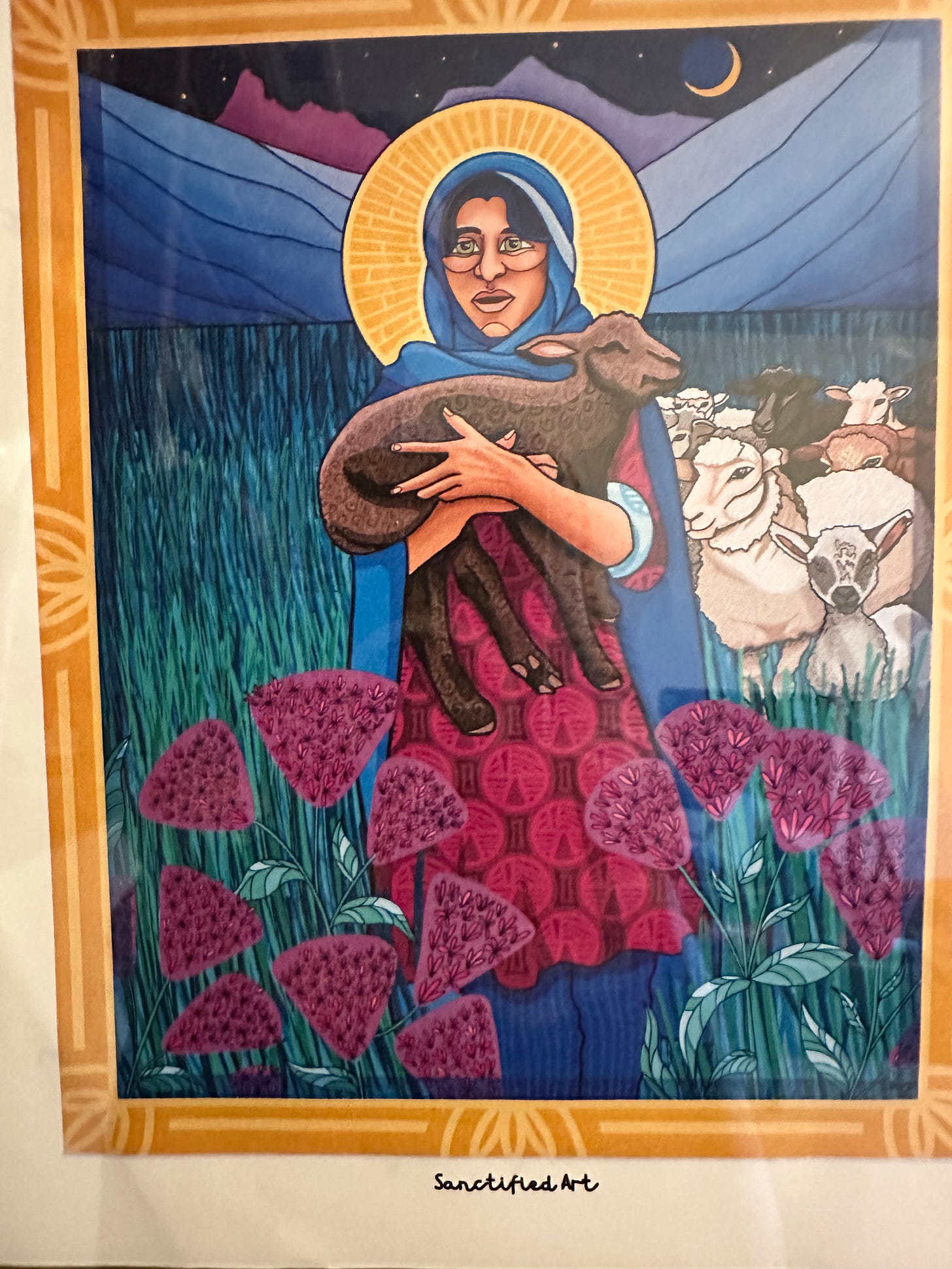For readers seeking my ghostwriting and book coaching content, visit this page.
I think the shepherds who watched the angelic opera and then went searching for Jesus were women and children.
A few weeks ago I wrote about the wise men from the Christmas story and how I was encouraged that I am coming home but by another route. I guess I’m still on a Christmas kick because this week I can’t get the shepherds out of my mind.
The longer I am back in the USA the more I appreciate ways my world expanded by spending more than twenty years elsewhere. I don’t always know what I learned or how to articulate it until it bounces up against something here in Minnesota. There was a lot of bouncing in January. Yikes.
This week, I was studying Luke 1 and 2 and saw four male/female pairings:
There is the announcement of a birth to Zechariah and an announcement of a birth to Mary.
There is Mary’s prophetic proclamation and there is Zechariah’s prophetic proclamation.
There is Elizabeth’s acceptance of Mary’s unusual pregnancy and there is Joseph’s acceptance of Mary’s unusual pregnancy.
There is Simeon’s words spoken over Jesus in the temple and there is Anna’s words spoken over Jesus in the temple.
And then, as I was reading about the shepherds, I saw a fifth male/female pairing.
In Somalia and Djibouti, traditionally, men and boys older than roughly seven or eight are camel and cattle herders. They roam far and wide searching for pasture and water and are often gone for weeks, if not months, at a time.
Women, girls, and young boys manage the household and herd the sheep and goats, which cannot roam as far as camels and need to stay closer to a source of water. Even when walking with flocks out in the desert, it is women and young girls who work as shepherds. But they return to the home at night, where the sheep are herded into shelters surrounded by thorny stick barriers or more permanent protection.
In the Bible, we see several women shepherds including my namesake, Rachel. There is also Zipporah, her six sisters, and the Shulamite woman.
The word for shepherd used in Luke is a masculine word. I am not a Greek scholar. But I do know that in English, French, Somali, and many other languages one male presence will skew a corporate word into the masculine form. You could have 100 women and one man and a masculine term is used. So maybe there was a teenage boy. Maybe there was an elderly man. Maybe there were a few men. That doesn’t preclude the very likely possibility that there were many women among the shepherds.
As I was thinking about these shepherds, I realized there are no kings in Luke. If our nativity scenes only had Luke, there would be no kings and we would have Simeon and Anna instead. But if we only had the book of Matthew, our nativity scenes would have no shepherds.
Matthew tells the story of the wise men, or the kings, who came to see Jesus. And Luke tells the story of the shepherds who come to see Jesus.
When we put the two books together and see the shepherds as women, there is a male/female pairing.
If our nativity scenes were more accurate, they would reflect this. Zechariah and Elizabeth, Mary and Joseph, Simeon and Anna, kings and shepherdesses.
Shepherds and kings all saw something miraculous in the sky. They received a message about a savior and they went on a hunt to find this one they had been told about. They found Jesus, Mary, and Joseph and were filled with joy. They went out and spread the word.
The kings did this and the shepherdesses did this.
I love that part of what opens my eyes to see this is that I spent twenty years in the Horn of Africa. I’m learning how to hold all that I saw, learned, experienced, and loved be folded into how I live and think now.
This is a picture a friend gave me. The story of all it means to me is for another day. But it is Rachel, the shepherd in Genesis, and it is me.
Over and over and over, the more I study, the more I see this pattern of partnership woven into the stories and into the very structure of our sacred text. This is not competitive or hierarchical. It is not me vs you or us vs them. It is not me at the expense of you, or denigrating you, or threatened by you.
It is all of us, together, seeing a sign in the sky. Receiving a message of hope. Hunting for that divine presence. Discovering it and being drawn into worship. Rushing out, filled with joy, to share the good news.
How does it land on you to think about the shepherds being women? Does it bother you? Excite you? Why? Why not?




Love your thoughts! I do have a nativity set with Anna, Simeon, and Elizabeth with baby John on her back. I like thinking that the shepherds (or shepherdesses!) and the magi returned to their lives and told about what they had witnessed so that when evangelists came later there were people ready to believe in Jesus as Messiah.
Thank you! This is something I've never considered. I may quote you...
"The word for shepherd used in Luke is a masculine word. I am not a Greek scholar. But I do know that in English, French, Somali, and many other languages one male presence will skew a corporate word into the masculine form. You could have 100 women and one man and a masculine term is used. So maybe there was a teenage boy. Maybe there was an elderly man. Maybe there were a few men. That doesn’t preclude the very likely possibility that there were many women among the shepherds."